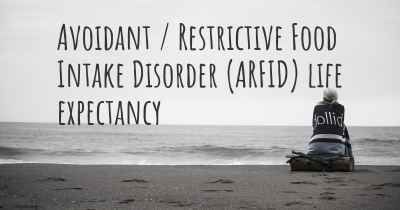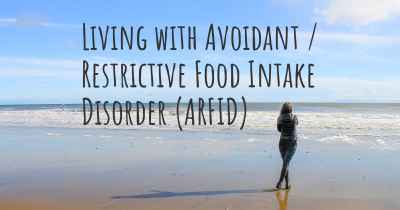Avoidant / Restrictive Food Intake Disorder (ARFID) diet. Is there a diet which improves the quality of life of people with Avoidant / Restrictive Food Intake Disorder (ARFID)?
Are you aware of a diet that can improve the quality of life of people with Avoidant / Restrictive Food Intake Disorder (ARFID)? Is there a diet that is suggested to avoid when having Avoidant / Restrictive Food Intake Disorder (ARFID)? See if there is a diet that can improve the quality of life of people with Avoidant / Restrictive Food Intake Disorder (ARFID), recommended and to avoid food when having Avoidant / Restrictive Food Intake Disorder (ARFID)

Improving Quality of Life for People with Avoidant / Restrictive Food Intake Disorder (ARFID)
Avoidant / Restrictive Food Intake Disorder (ARFID) is a complex eating disorder characterized by a limited range of food choices and an avoidance or restriction of certain foods. This disorder can significantly impact an individual's quality of life, making it important to find strategies and dietary approaches that can help improve their overall well-being.
1. Seek Professional Help
Consulting with a healthcare professional or a registered dietitian who specializes in eating disorders is crucial for individuals with ARFID. They can provide personalized guidance and support, helping to develop an appropriate treatment plan tailored to the individual's specific needs.
2. Gradual Exposure Therapy
Gradual exposure therapy is a common treatment approach for ARFID. It involves gradually introducing new foods or expanding the variety of foods in a controlled and supportive environment. This process helps individuals become more comfortable with unfamiliar foods and reduces anxiety around eating.
3. Food Texture Modification
Many individuals with ARFID have aversions to certain food textures. Modifying the texture of foods can make them more palatable and easier to consume. For example, blending vegetables into smoothies or pureeing fruits can help individuals incorporate essential nutrients into their diet without triggering aversions.
4. Nutritional Supplements
In cases where individuals with ARFID struggle to meet their nutritional needs, nutritional supplements can be beneficial. These supplements can provide essential vitamins, minerals, and other nutrients that may be lacking in their restricted diet. However, it is important to consult with a healthcare professional before starting any supplements.
5. Meal Planning and Structure
Establishing a regular meal schedule and incorporating structure into eating habits can be helpful for individuals with ARFID. This can include planning meals in advance, setting specific times for eating, and creating a calm and supportive environment during mealtimes.
6. Food Exposure and Desensitization
Gradually exposing individuals to feared foods and incorporating them into their diet can help reduce avoidance behaviors. This process should be done in a supportive and non-threatening manner, allowing individuals to explore new foods at their own pace.
7. Cognitive Behavioral Therapy (CBT)
Cognitive Behavioral Therapy (CBT) is a therapeutic approach that can be beneficial for individuals with ARFID. It focuses on identifying and challenging negative thoughts and beliefs surrounding food and eating. CBT can help individuals develop healthier attitudes and behaviors towards food, leading to improved quality of life.
8. Supportive Environment
Creating a supportive and understanding environment is crucial for individuals with ARFID. Family, friends, and healthcare professionals should provide encouragement and avoid pressuring or criticizing the individual's eating habits. Support groups or therapy sessions with others who have ARFID can also be beneficial.
While there is no specific diet that can cure ARFID, implementing these strategies can help individuals with ARFID improve their quality of life and develop a healthier relationship with food. It is important to remember that each person's journey is unique, and finding the right approach may require patience and professional guidance.
Posted Apr 9, 2020 by layla ten cate 2550








